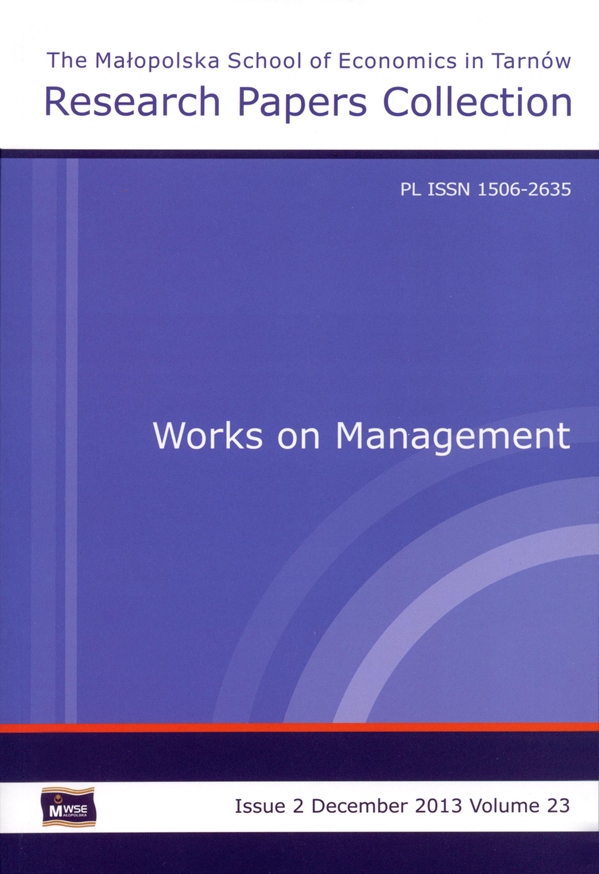Abstrakt
W ciągu ostatnich kilku lat branża turystyczna przeszła ogromne zmiany. Musiała zmagać się nie tylko z kryzysem ekonomicznym, ale też z ogromnymi wyzwaniami, jakie postawiły przed nią pojawiające się na rynku internetowe biura podróży. Klienci, zamiast korzystać z tradycyjnej formy zakupu wakacji, wiążącej się z koniecznością odwiedzenia biura podróży, mogą wykupić wakacje lub pobyt w hotelu w internecie, nie wychodząc z domu. Wraz z uruchomieniem w sieci globalnej stron internetowych pośredniczących w sprzedaży oferty turystycznej pojawiły się towarzyszące tym stronom komentarze internetowe – nowy sposób, w jaki korzystający z oferty mogą podzielić się z innymi swoimi doświadczeniami z pobytu w hotelach. Komentarze internetowe odgrywają coraz większą rolę w procesie kupowania wakacji. Klienci chętniej sięgają po oferty wakacyjne, jeśli dostępne są komentarze. Nową formą marketingu internetowego stają się media społecznościowe, które w ostatnim okresie stały się jedną z najistotniejszych form internetowego marketingu szeptanego. Niniejszy artykuł poświęcony jest zmianom, jakie dokonują się obecnie w branży turystycznej pod wpływem mediów społecznościowych oraz komentarzy internetowych. Autorzy artykułu badają wpływ tych zmian na hotele i biura podróży.
Bibliografia
Aggarwal B. Importance of social media tracking and online reputation management [online, accessed: 2013-05-05]. Hotel Business Review. Available online: http://hotelexecutive.com/business_review/2821/importance-of-social-media-tracking-and-online-reputation-management.
Zobacz w Google Scholar
Au A. Adoption of web 2.0 by tourism businesses in NSW (Research Reports). Sydney: Tourism New South Wales, 2010.
Zobacz w Google Scholar
Bellstrom K. Travel agents are staging a comeback [online, accessed: 2013-05-11], 2007. Available online: http://www.smartmoney.com/spend/travel/travel-agents-are-staging-a-comeback-21275/.
Zobacz w Google Scholar
Booking.com. In het kort [online, accessed: 2013-05-07]. Available online: http://www.booking.com/general.nl.html?aid=357006;label=gog235jc-general-nl-XX-docscareerUopportunities-unspec-gr-com;sid=5bb4630d6e1f95bb6945c751c751dc42;dcid=1;tmpl=docs/about.
Zobacz w Google Scholar
Browning V., So K.K.F., Sparks B. “The influence of online reviews on consumers’ attributions of service quality and control for service standards in hotels”. Journal of Travel & Tourism Marketing, 2013, vol. 30, iss. 1–2, pp. 23–40.
Zobacz w Google Scholar
Buckley R., Perkins H.A., Sparks B.E. “Online travel reviews as persuasive communication: The effects of content type, source, and certification logos on consumer behaviour”. Tourism Management, 2013, vol. 39, pp. 1–9.
Zobacz w Google Scholar
Dogac A. et al. “Semantically enriched web services for the travel industry”. ACM SIGMOD Record, 2004, vol. 33, no. 3, pp. 21–27.
Zobacz w Google Scholar
Galloway L., Mochrie R.I., Deakins D. “ICT-enabled collectivity as a postitive rural business strategy”. International Journal of Entrepreneurial Behaviour & Research, 2004, vol. 10, iss. 4, pp. 247–259.
Zobacz w Google Scholar
Haenlein M., Kaplan A.M. “An empirical analysis of attitudinal and behavioral reactions toward the abandonment of unprofitable customer relationships”. Journal of Relationship Marketing, 2010, vol. 9, iss. 4, pp. 200–228.
Zobacz w Google Scholar
Jones C., Yu R. “Travel industry uses Facebook and Twitter to reach customers”. USA Today, 7.07.2010.
Zobacz w Google Scholar
Katsoni V., Dionysopoulou P. “The influence of social media (SM) & information and communication technologies (ICTs) and the creation of collaborative commerce (c-commerce) in the tourism sector”. In: Tourism trends and advances in the 21st century. 5th International Scientific Conference May 30―June 2. Rhodes: University of the Aegean, 2013, pp. 198–205.
Zobacz w Google Scholar
Katsoni V., Venetsanopoulou M. “Use of innovation systems for an effective tourism marketing development strategy”. e-Journal of Science & Technology [online, accessed: 2014-02-03], 2013, vol. 8, no. 5, pp. 33–40. Available online: http://e-jst.teiath.gr/.
Zobacz w Google Scholar
Kavoura A., Katsoni V. “From e-business to c-commerce: Collaboration and network creation for an e-marketing tourism strategy”. Tourismos: An international Multidisciplinary Journal of Tourism, Special Issue in Tourism Destination Marketing & Management, 2013, vol. 8, no. 3, pp. 113–128.
Zobacz w Google Scholar
O’Mahony M.P., Smyth B. “Learning to recommend helpful hotel reviews”. In: RecSys ‘09: Proceedings of the third ACM conference on Recommender Systems. New York: ACM, 2009. ISBN 978-1-60558-435-5.
Zobacz w Google Scholar
Pramis J. Worldwide smartphone usage will reach 1.4 billion this year [online, accessed: 2013-05-11], 2013. Available online: http://www.digitaltrends.com/mobile/worldwide-smartphone-usage-will-reach-1-4-billion-2013.
Zobacz w Google Scholar
Schegg R., Liebrich A., Scaglione M., Ahmad , S.F.S. “An exploratory field study of web 2.0 in tourism”. In: Information and communication technologies in tourism 2008. Ed. P. O’Connor, W. Höpken, U. Gretzel. Wien: Spinger, 2008, pp. 152–163. ISBN 9783211772799.
Zobacz w Google Scholar
Sharma P., Carson D., De Lacy T. “National online tourism policy initiatives for Australia”. Journal of Travel Research, 2000, vol. 39, no. 2, pp. 157–162.
Zobacz w Google Scholar
Sheldon P.J. Tourism information technology. New York: CABI Publishing, 1998. ISBN 0851991815.
Zobacz w Google Scholar
Vermeulen I.E., Seegers D. “Tried and tested: The impact of online hotel reviews on consumer consideration”. Tourism Management, 2009, vol. 30, iss. 1, pp. 123–127.
Zobacz w Google Scholar
Werthner H., Klein S. “ICT and the changing landscape of global tourism distribution”. Electronic Markets, 1999, vol. 9, no. 4, pp. 256–262.
Zobacz w Google Scholar
Wikipedia, Expedia, Inc. [online, accessed: 2013-05-07], 2013. Available online: http://en.wikipedia.org/wiki/Expedia,_Inc.
Zobacz w Google Scholar
© Copyright by Małopolska Wyższa Szkoła Ekonomiczna w Tarnowie. Artykuły są udostępniane na podstawie Creative Commons Attribution Uznanie autorstwa - Użycie niekomercyjne - Bez utworów zależnych 4.0 Licencja Międzynarodowa


